Snowden's leaks served only to strengthen the NSA's resolve

Edward Snowden is heralded as both a hero and villain. A privacy vigilante and a traitor. It just depends who you ask. The revelations he made about the NSA's surveillance programs have completely changed the face of online security, and changed the way everyone looks at the internet and privacy.
But just before the whistle was blown, it seems that the NSA was considering bringing its telephone data collection program to an end. Intelligence officials were, behind the scenes, questioning whether the benefits of gathering counter-terrorism information justified the colossal costs involved. Then Snowden went public and essentially forced the agency's hand.
GCHQ does not engage in indiscriminate blanket surveillance
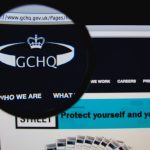
When Edward Snowden blew the whistle on the activities of the NSA, it sparked a global interest in how internet traffic is monitored. The UK's Intelligence and Security Committee of Parliament today published a report into online surveillance carried out by GCHQ, MI5 and MI6 after an 18-month inquiry.
Among the findings is the conclusion that surveillance is legal, but an overhaul is needed to increase transparency. The suggestion that GCHQ's interception of emails "does not equate to blanket surveillance, nor does it equate to indiscriminate surveillance" is likely to be met with skepticism. But what's likely to raise more eyebrows is the revelation that the agency has apparently managed to crack encryption.
Tails reaches 1.3 -- the Linux distro that Edward Snowden used gets major update

If you have nothing to hide, you shouldn't care if the government spies on you, right? Wrong. No stupider words can ever be spoken. Your privacy should be very valuable to you, even if you only do squeaky-clean things. If someone was to snoop on my computer, they wouldn't find much; some family photos, a few games and other nonsense. Guess what? It is my nonsense, and I'll do whatever it takes to secure it.
If you want to cover your tracks, however, the best way is to use a CD or DVD-based operating system, as there is no hard drive access -- everything is run from the read-only medium. To be sure, you can physically remove the hard drive from your machine. A flash drive or SD Card can be used too, but they are less secure as both can be written to. Edward Snowden took this approach when he wanted to hide from the NSA. His OS of choice? The Linux-based Tails. Today, it hits version 1.3 and many security issues have been fixed.
Did the NSA spy on you and pass information to GCHQ in the UK? Here's how to find out
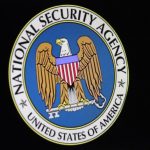
It is just about impossible to be an internet user without being aware of the surveillance that has been carried out by the NSA; cheers for the tip, Mr Snowden. While it was the NSA's activities that hit the headlines, governments in other countries used -- and continue to use -- similar surveillance techniques and even share information between each other.
We already know that GCHQ believes that online privacy has never been an absolute right, but this does not change the fact that data sharing between the NSA and GCHQ was illegal before December. Now Privacy International, one of the organizations opposed to such spying, has launched a campaign to help people find out if GCHQ illegally received information about them from the NSA.
Thanks to Snowden, NSA-GCHQ surveillance data sharing is now legal

A secret UK court has ruled that the UK's intelligence agency GCHQ acted unlawfully by intercepting information gathered by the NSA. Investigatory Powers Tribunal said that because the rules surrounding the UK’s access to the NSA's PRISM and UPSTREAM program data were secret, data sharing between the US and UK was illegal. A case has been brought against GCHQ by Privacy International, Bytes for All, Liberty, and Amnesty International.
But while the IPT said that accessing this information breached human rights laws this is no longer the case. Why? The illegality of sharing data collected through these surveillance programs centered on the very fact that they were secret. In blowing the whistle about what the NSA was doing, Edward Snowden unwittingly made this data sharing legal. Whoops.
Snowden: iPhone has special software that gathers information on you
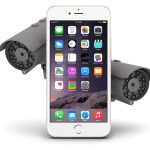
You have to take a little (sometimes a lot) of salt with some of the revelations made by Edward Snowden, but his latest claim is, on the surface at least, a damning one for Apple.
According to the NSA whistle-blower’s lawyer, the iPhone has special software installed which can be remotely activated, and used to keep tabs on your whereabouts. A spyPhone, if you will.
North Korea blamed for Sony hack because NSA had been spying since 2010

When Sony Pictures was hacked, the US was quick to point the finger of blame at North Korea. Security experts may have disagreed, but newly declassified documents show that the NSA had been monitoring the nation as far back as 2010 -- and there are even hints that the US was aware of the possibility of North Korea launching some form of cyberattack.
With the help of allies such as South Korea, US intelligence services were able to tap into North Korean web traffic. The NSA also went as far as installing malware on North Korean computers with a view to monitoring the activity of key systems. New papers published by Der Spiegel show that it is this spying that helped to pin the blame for the Sony attack on NK.
Google's latest Transparency Report shows a drop in government data removal requests

After Edward Snowden blew the whistle on the surveillance activities of the NSA, there has been greater public interest in what data governments are obtaining from technology companies, and what data was subject to censorship and removal. Back in 2010 Google started something of a trend with its first transparency report, and today sees the launch of the latest edition.
Covering the six months from July to December 2013, the latest Transparency Report shows that while there were more requests than the same period in 2012, there has been a drop when compared to the first half of 2013. In all, Google received 3,105 requests to remove 14,637 items, compared to 3,846 requests and 24,737 items in H1 2013, and 2,289 requests and 24,191 items in H2 2012.
Edward Snowden condemns Amazon's 'morally irresponsible' encryption policy -- users don't care

In a near-perfect example of how there is always more than one way to look at things, Edward Snowden has very different views on Amazon than Amazon users do. On Friday, Snowden appeared -- as ever -- via video link at the surveillance symposium at the Cato Institute. He condemned Amazon's lack of encryption of customers' searches, referring to the practice as "morally irresponsible".
But Snowden's condemnation of Amazon comes at the same time as a study by Bizrate Insights which finds that more than 45 percent of online shoppers trust the site with their payment and personal information. So why the disparity?
German and UK Internet users most likely to quit web services over privacy concerns
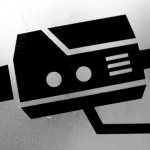
Internet users from the UK and Germany are more likely to stop using or delete an account for an online service than those from the United States, according to research into data privacy concerns.
The report by German software firm Open-Xchange, called Crossing the Line, investigated how online behavior has been affected by Edward Snowden’s revelations regarding government surveillance programs.
Idaho nurse gains backing of EFF and ACLU in fight against the NSA
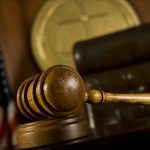
Usually it's the big guys, or at least national and international organizations, that stand up to fight against the government. But on Monday, a nurse from Idaho will continue to fight the case she brought against Barack Obama and government intelligence agencies. Anna Smith says her Fourth Amendment rights were violated when the NSA collected data about her from phone records.
A district court ruled against Smith when she first started to fight the case, but now she has the backing of the Electronic Frontier Foundation (EFF), the American Civil Liberties Union (ACLU) and the American Civil Liberties Union of Idaho.
Government surveillance does not breach human rights -- Amnesty International disagrees
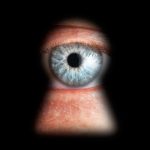
Amnesty International hit out at a court ruling that found communication surveillance carried out by UK secret services did not breach human rights. Amnesty UK and Privacy International brought the case to court following revelations by Edward Snowden that showed GCHQ (UK secret services) and the NSA had been spying on people by monitoring their correspondence.
But a panel of judges found that the actions of GCHQ do not contravene the European Convention of Human Rights. Amnesty said the result was "disappointing if unsurprising" and indicated that it will appeal at the European Court of Human Rights in Strasbourg.
Republicans vote against USA Freedom Act that would have limited NSA surveillance
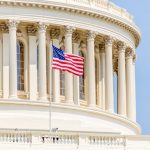
A bill that could have curtailed the surveillance activities of the NSA has been rejected by the US Senate. The USA Freedom Act was blocked as a bloc of Republican senators voted against the Obama-backed bill. After the Edward Snowden revelations, there have been many vocal calls for the powers of the NSA to be reined in. This was the bill that was supposed to deliver, but right wing opponents referred to it as a "gift to terrorists".
The bill passed the House of Representatives in May and had the backing of many of the biggest technology companies. One of the main aims of the USA Freedom Act was to stop the collection of domestic phone records, but there were also implications for the agency's online dragnet-style data trawling. Now it seems that the fight for privacy starts afresh.
GCHQ's uncomfortable truth about the web: 'privacy has never been an absolute right'

The head of GCHQ, the UK's equivalent of the NSA, says that the Edward Snowden leaks have helped terrorist organizations such as ISIS who have taken to the web to spread propaganda. Writing in the Financial Times, Robert Hannigan points out that ISIS is the first terrorist group whose members have grown up on the internet. He says that the group has made use of "messaging and social media services such as Twitter, Facebook and WhatsApp, and a language their peers understand" and that the security tools that have popped up post-Snowden makes the work of GCHQ in tracking communication much harder.
This might not come as a surprise, but something else that Hannigan says is likely to raise eyebrows. His assertion that "privacy has never been an absolute right" goes against the grain of what many web users believe, but he suggests that the challenges facing governments and intelligence agencies in fighting back against terrorists can "only be met with greater co-operation from technology companies".
Revealed: the secret guide to encryption, hacking, and surveillance for governments

There is now great interest in the level of governmental interference that takes place into online activity. Edward Snowden told the world about what the NSA was up to and there are now numerous websites dealing with the revelation that he made. One such site is The Intercept, and it has just published the secret manuals that are supplied to governments who want to use a suite of specialist tools to monitor web users' activities.
Sub-titled "the hacking suite for governmental interception", RCS 9 (or Remote Control System) is a suite of tools from Hacking Team. The Italian security and surveillance company is responsible for providing hacking and monitoring guides and software to a list of countries including Colombia, Korea, Mexico, Nigeria, and Saudi Arabia. RCS itself is "a solution designed to evade encryption" -- the sort of encryption put in place by Google.
Recent Headlines
Most Commented Stories
BetaNews, your source for breaking tech news, reviews, and in-depth reporting since 1998.
Regional iGaming Content
© 1998-2025 BetaNews, Inc. All Rights Reserved. About Us - Privacy Policy - Cookie Policy - Sitemap.